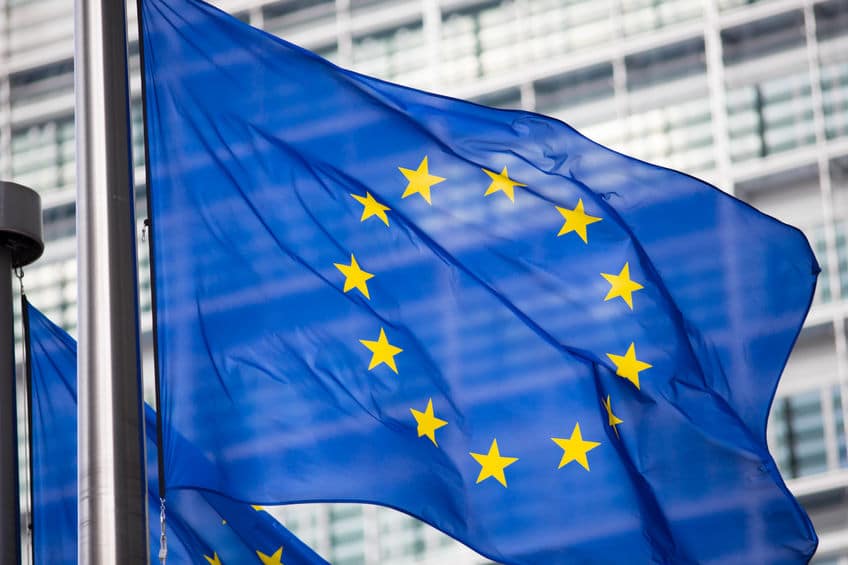
By Guest Author Hera Jay Brown
Around the world, the movement of people—either voluntarily or forced—has become a dominating topic of domestic discourse for nations. It has citizens and immigrants asking one central question: what does it mean to be a citizen or resident, today?
As a 2019-2020 Fulbright-Schuman Research Grantee to the European Union (E.U.), I will study this question in my upcoming fieldwork in Malta, Lithuania, and Belgium. My research will consider how class separations among migrants affect how citizens see and respond to them. I will also analyze domestic and E.U. policies on immigration and national identity. In this article, I give some suggestions and ideas for future applicants to the Fulbright-Schuman Research Grant.
The Fellowship Structure
Unlike most other Fulbright Research Grants, the Fulbright-Schuman Grant is a multi-country program based within the E.U. While some Fulbright grants require residence in one country, the Fulbright-Schuman requires researchers to reside in two or three E.U. member states during the fellowship. Because of this, it is particularly suited for those undertaking comparative research frameworks on a broad spectrum.
If you’re thinking about pursuing a Fulbright-Schuman Research Grant, or any Fulbright Research Grant for that matter, the first thing to ask is: Do I want to do research? This may seem obvious, but really, do you? These grants range from 9-13 months and that means you are going to spend a lot of time on required researching, reading, and digging deeper. Think of it like this: You will be a full-time researcher devoting 35-40 hours a week to your project. If that sounds exciting, this grant could be a great opportunity for you – but definitely be aware of what you’re signing yourself up for!
3 Past Experiences to Highlight in Your Application
It’s a good idea to showcase past experiences in your application that show that you are prepared for the rigor of the Fulbright-Schuman Program. Of course, it is understood that not everyone has had the same access to resources/opportunities, and the Fulbright committee will take this into account as they review your application. However, if you can highlight some of these past experiences, it would strengthen your application.
Research
Given that the Fulbright-Schuman focuses on multi-country research, demonstrating your familiarity with research in your application is vital. Whether working on a research project with a graduate student/professor or spearheading your own research endeavor, experience working on a research project will help you in two specific ways. First, it will demonstrate that you are able to grapple with the frustrations of doing research and have the tenacity required to see a project through to the end. Second, research experience demonstrates that you know what you’re doing (after all, you are asking for people who, presumably, know nothing to very little about your abilities to fund you). Ask your professors, go to an undergraduate advisor, or talk to your lab partner; whatever you do, try to get some research experience under your belt to showcase in your application
Service/Co-Curriculars
Another component of the application will ask you to detail how you will engage with your host communities in the EU. This engagement does not have to directly parallel your research agenda, but applicants should think about their own interests and how those could take root abroad. Choral groups, swim teams, non-profit volunteering, and so many other examples are prime ideas for this component. However, it’s important to demonstrate your commitment and ability to follow through on these ideas abroad. The best way to show the committee that you will follow through is to demonstrate involvement in similar activities where you live now. Play to your strengths (pun intended).
International Engagement
Though not a requirement, international engagement definitely supports an application. Because Fulbright-Schuman grants have a multi-country focus, demonstrating that you have the ability to handle culture-shock while thriving in foreign environments is helpful. While it does not have to be in the countries you are proposing to research in (I had never been to the countries I selected), international engagement is a great thing to talk about in your application essays.
3 Parts of a Solid Research Proposal
Now comes the fun part – imagining the future! There are three main points I will briefly touch on: location, logistics, and affiliates.
Location
As noted above, Fulbright-Schuman Grantees must conduct their work in two to three E.U. member states. While not required, demonstrating a broad understanding of the E.U. — and not only western Europe — will bolster an application by showing an awareness of realities in multiple E.U. states. For example, my program centers on two of the E.U.’s most southern and eastern border countries in addition to Belgium, a country that hosts a multitude of E.U. institutions. This worked for my specific project, but at the end of the day, candidates need to demonstrate that they have put significant thought into the best institutions and locations where their research agendas will thrive while also shedding light on today’s pressing issues in the E.U.
Logistics
Fulbright-Schuman Grantees receive significantly more funding compared to other programs. This is due, in part, to the cost of relocating up to three times during the grant period. When applying, it is important to lay out a timeline for the committee so that they can see that you have put time and consideration into how best to steward these resources. How will you divide your nine months between your designated countries? Why is it important to spend specific periods of time in specific countries, or is it not important at all? Would spending a specific season or holiday in a country provide greater insight with your topic? Are conferences or meetings of government in session at a specific time? These are all important questions to consider in your application.
Affiliates
Finally, applicants will be asked to outline affiliates they plan on working with during their time as fellows. For my program, I am working with two non-government agencies and a university. Other Fulbright-Schumans have worked with all universities or non-government agencies. Some fellows have even had one affiliate supervise their multi-country research. The affiliates are there to support the scholar during their time in each location through networking, provisioning of resources, and settling into local life. Think of what makes the most sense for you, make contact with those you propose to work with and secure strong letters of affiliation detailing what the affiliate is willing to provide to the project to ensure its success. Make sure they emphasize why this project at this particular point in time is important to E.U.-U.S. relations.
While these tips are not exhaustive, they are points that I wish I knew when applying in the fall of 2018. I hope they provide some insight into what is expected of Fulbright-Schuman awardees by showing what information will demonstrate that a candidate has invested enough time and energy to ensure a well-rounded and insightful project, both for themselves and the E.U. To those of you endeavoring on in the application process, I wish you the best of luck and hope to have you join the ranks as Fulbright-Schuman Fellows to the European Union in the years to come.

Hera Jay Brown (she/her) is a 2019-2020 Fulbright-Schuman Grantee to the European Union. Her work focuses on the intersections of immigrant rights, asylum, and class with domestic and international legal regimes governing refugees, development, humanitarianism, human rights, movement, and labor. Following her time with the Fulbright-Schuman Program, Hera Jay plans to pursue a joint J.D./Ph.D. in Anthropology where she will integrate legal practice and international experience into the defense of migrant rights and protections in the U.S. Hera Jay hopes to one day serve as the first openly-trans United Nations High Commissioner for Refugees.
© Victoria Johnson 2019, all rights reserved